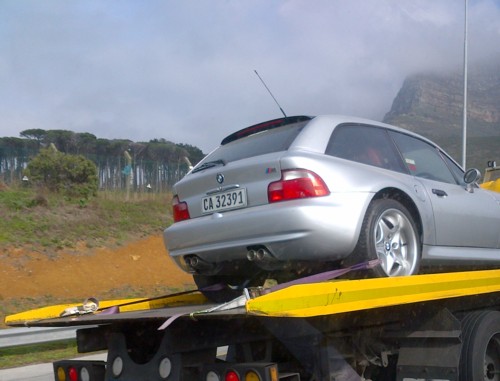FUEL PRESSURE EPC PROBLEMS
EPC problems are a pain in the butt, they just complicate your life, make you late for appointments, leave you stranded on highways when you least expect it. Makes you curse and cuss and make you want to fit a accelerator cable but these issues as not limited to VAG cars, as can be seen in the pics. At times EPC faults even endanger your life when they occur on the freeways, especially in fast flowing traffic when limp mode doesn't even enable you to get your vehicle off the road and out of harms way quick enough as not to be the cause of an accident. EPC fault are so darn frustrating. EPC faults are so time consuming and EPC faults are so expensive to repair, hence many a VW, Audi, Skoda and Seat driver attempts to self diagnosis and repair their own vehicles. I have found that EPC faults can be really crappy to diagnose because the ECU's firmware and switching hardware is in control and operates at high speed and therefor cannot be measured, unless you have a multi-channel digital storage oscilloscope. Since there are not ECU timing charts available to accurately pinpoint the causes of ECU problems, we hear many stories, in which the VW, Audi, Skoda and Seat agents are stymied by the EPC light, loss of acceleration and limp mode home. Several Audi, VW, Seat and Skoda driver can relate such stories. Stories of taking their vehicles to the relevant sevice agent only to be told that they found nothing wrong, with the car, they then clear the DTCs saying it was just a sporadic / isolated event or often times they suspect and change some expensive components, exorbitantly bill for it, yet never solve the problem because within two or three days the EPC problem strikes again. This peculiarity of the EPC problem tends to go away the following day and the car drives as if there was never any problem. It is so intermittent that the vehicle just borders on becoming unreliable. That really sucks.What I have found, is that when an EPC related problem occurs, a DTC is flagged and stored in memory for later retrieval, meanwhile the EPC light is triggered and stays on, with the result that the engine only revs to 1200 RPM. Since the light is already on, even if a second or third EPC problem occurs, there is no way to tell because additional EPC problems won't make the yellow /amber EPC light glow any brighter. However if the DTC of the first EPC fault is different from the second of third, additional DTCs will be observed when the memory is retrieved. Should an EPC fault occur and trigger the EPC light, and a second is not undetected over a successive distance of approximately 1000 km, it is automatically erased from the memory and the EPC light will go off. EPC light problems are predominantly found on electronic Drive by Wire systems because they are torque driven. Whenever a problem occurs in the electronic Drive by Wire circuit, the EPC circuit / system acts as a safety measure to prevent injury to the occupants and the car itself by going into limp mode.
It is quite common for the PWM Signal from the ECU to the fuel pump control module to fail, resulting in the EPC light switching on and the vehicle going into limp mode. It is quite easy to verify whether or not the ECU was at fault because by disconnecting the battery and reconnecting it after a few minutes, it resets the ECU's clock since it doesn't have backup power. Removing the battery does not delete DTC memory nor the learnt ECU adaptation values so its quit safe to do. It however triggers a manufacturer specific 18010 DTC - Power Supply Terminal 30 missing, or a generic P1602 DTC -Voltage too Low, Intermittent which will be sen the next tie you connect to a scan tool.
Normally whenever the ECU detects a fault, like a missing pulse or an intermittent connection it calculates a substitute value from other available signals and makes an emergency running mode available to keep the vehicle driving. I have noticed what's different between the electronic Drive by Wire systems and the rest of the on-board systems is that the ECU does not provide a substitute signal for torque related / electronic drive by wire faults. So if either G79 or G185 or both fails, it results in no throttle response but the ECU does not generate a substitute signal, it rather just goes into emergency mode and switches on the EPC light. Like wise if G187 or G188 or both fails also, resulting in no throttle response the ECU again does not generate a substitute signal but rather goes into emergency mode and switches on the EPC light. When N30, N31, N32 or N33 fails or any of the the Ignition Coils fails, the EPC light as well as the Mil light switches on but since the engine runs rough, its easy to isolate and remedy. When the wastegate bypass regulator valve or the fuel pressure regulator valve fails, frustrating limp mode and the EPC light once again spoils your day.



